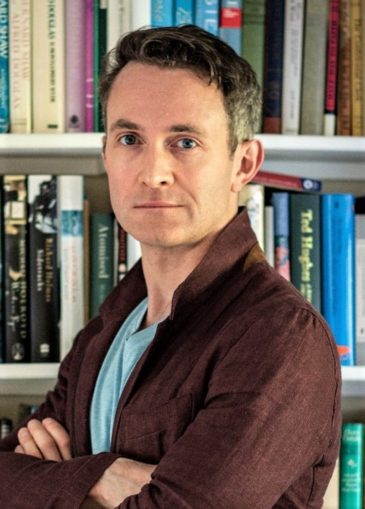
AndyCNgo; cropped by Beyond My Ken (talk) 00:23, 8 May 2020 (UTC) / CC BY-SA
During these increasingly polarized times, it is easy for logical debates to give way to emotionally charged shouting matches. Once the idea of free dialogue is gone, riots, destruction and violence are sure to follow, as we’ve seen in almost the entire Western world over the last weeks. However, there is a much more important element at the core of these tensions, that is being overshadowed by the loudest voices and the incendiary media coverage, and this is the value of the Western civilization itself.
Attacks against Western values, ideas and even the Enlightenment itself, have been around for decades, but up until recently, they had been largely contained in academia and in the fringes of civil society, only rarely escaping to the “real world” and inflicting actual damage. Now, however, this bitter and violent hostility against anything and everything the Western way of life and way of thought has produced has become almost mainstream. Today, any claim or opinion that vilifies the achievements of the West and presents them as corrupt or toxic is widely and proudly broadcast, while any fact that proves the contrary is shouted down. If you follow that strategy over the decades, you will automatically understand what Karl Marx meant when he said that the philosopher does not have to interpret history, he has to change it.
This is also why we now witness the destruction of statues, the erasure of history in all parts of the globe. This idea that history can be “reset” and re-written at will might have seemed foolish and childish a decade ago, but today it is a legitimate political strategy. And it’s certainly not naive. After all, as George Orwell put it, those who control the present control the past, and those who control the past control the future. Therefore, we are confronted with a mass movement that is drawing a highly decadent picture of the Western world. This picture, nevertheless, is also highly deceptive.
From the point of view of the average citizen, it was Western values that secured essential liberties, such as freedom of speech. For our societies, it was the ideas that came out of the Enlightenment that gave us the equality under the law we enjoy today and dispersed the notion that some people are just born higher and better than others and thus should live by different rules, a notion that is, by the way, alive and well and in full legal enforcement in parts of the world that rejected Western influences. This focus on the individual, rather than his or her “group”, is the most important gift our forefathers left us. The understanding that one must not be summarily assessed based on their economic or their social status, their gender, their religion or their racial group, but judged only by “the content of their character” is what allowed us all to break free from predetermined fates and to build bridges across all these artificial divides that are now being strategically used to tear us asunder.
Even on a much more practical level, as savers, as investors and as working people, it was the work ethic of the Western civilization that gave rise to the whole idea behind long-term, widespread and sustainable growth. Value creation before distribution, saving before spending, and investing before consuming. These core principles, that have contributed to the quality of life and prosperity we have enjoyed for so long, are now being turned on their heads, corrupted and replaced with short-sighted and politically motivated ideas that serve only to undo this centuries-long progress.
It is this very central question of the normalization of the vilification of the West that I found was expertly dissected and analyzed by Douglas Murray in the following podcast. He very eloquently describes how we got here, how every single issue ended up being seen from an oppressed vs oppressor viewpoint, and how by turning everything upside-down, or by ignoring the fact that every coin has two sides, we’re sure to devolve even deeper into tribalism and conflict for conflict’s’ sake.
Enjoy the podcast.
Claudio Grass, Hünenberg See, Switzerland 2020
This article has been published in the Newsroom of pro aurum, the leading precious metals company in Europe with an independent subsidiary in Switzerland.
This work is licensed under a Creative Commons Attribution 4.0 International License.
The Goodnight Vienna Audio file
Audio Player



